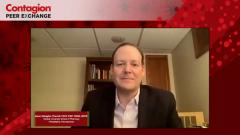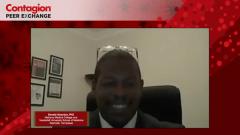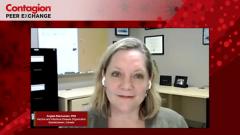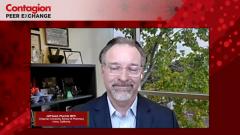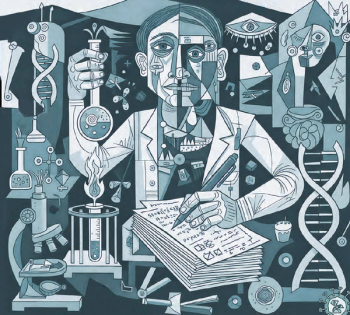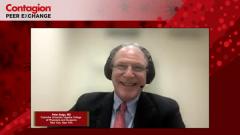
Communicating the Benefit of COVID-19 Booster Shots to Patients
Donald Alcendor, PhD, and Angela Rasmussen, PhD, explain how to discuss the importance of COVID-19 booster shots with patients.
Episodes in this series

Peter Salgo, MD: It’s one thing to say, we looked at the antibody levels and they’re down to 70% of where they were in the first month after you got the second dose. But I think what the public needs to hear or is asking to hear, which we don’t have an answer for is, does this make a difference? Is 70% enough? Why do I need a booster if I’m already immune? Seventy percent sounds pretty good to me. How do you message that to people who don’t have a statistical background? Does anybody have any suggestions here?
Donald Alcendor, PhD: I think you must tell people that if they’ve gotten their complete vaccination regimen, that they are completely vaccinated. Of course, a booster is recommended. Again, you wouldn’t say mandatory. When I think about boosters, I think about a targeted population; people that have a situation where their immune system is more likely compromised and are more subject to waning over time because of age and condition. I think this is more appropriate for boosters because I think in the long run, what we will have is a virus that will become endemic in our population. The idea of thinking that we can chase variants with boosters is a failed effort, and I think we must realize that. Think about it this way, if we have a variant that comes along that is resistant to all the immune protection that we have already to the other viruses, are we simply going to make a new vaccine and start to vaccinate 360 million people all over again? This would be impractical. We must look at this in a practical way. This vaccine made to the same antigen, all the vaccines have the same antigen in them, from the original Wuhan strain. The idea is that they have been able to protect against 4 of the 5 variants of concern outside of the Omicron variant. I think down the road it’ll be proven that vaccination protection will also protect to some level, and I think appreciable level, this new variant.
Peter Salgo, MD: I think people are uncomfortable with medical recommendations. This isn’t physics, and they don’t get it. I think people make recommendations based on population data, the best data we have to date, and safety recommendations based on large population studies. It’s not always A plus B equals C; A plus B usually equals C, and it’s pretty good to within a statistical variability, but it’s not the same. It sounds to me as if some of what we’re hearing about the waffling on the messaging is not waffling at all, rather simply medicine is good as it can be and never will be much better than that. Angie, you’re shaking your head.
Angela Rasmussen, PhD: No. I agree with that. I think that the messaging is a problem and I think that it’s been a problem throughout the entire pandemic. We’ve had a very difficult time communicating uncertainty to the general public. We’ve had a very difficult time communicating a lot of basic things that we take for granted: how vaccines work, how viruses work, how viruses replicate, how viruses are transmitted, and what mutation means. We’ve had a really hard time really communicating these things to the general public. When a broad public health recommendation is made, when you’re trying to make those recommendations on the fly in the face [of] a lot of uncertainty, and also when there’s a whole giant peanut gallery of people criticizing the public health agencies’ every move, it becomes very challenging to get it right every time. I think that we do the best that we can, and the public health agencies do the best that they can. They sometimes get it right and sometimes they don’t. If anything, I think that one of the biggest problems has been also the politicization of basic public health practices. That has put additional barriers beyond what already existed in terms of people’s willingness to engage with these complicated topics. With most people that I’ve talked to, they just want to be safe and want this pandemic to be over. Then when there’s this whole other political element to it as well, and the misinformation and the disinformation coming at them from all sides really, I don’t blame people for being confused. I don’t entirely blame the public health agencies for making missteps sometimes. It’s just a really challenging environment to be dealing with all of these different moving parts and try to chart the correct path through all of this.
Peter Salgo, MD: I want to thank you at home for watching this Peer Exchange discussion. If you enjoyed the content, subscribe to our e-newsletters to receive upcoming Peer Exchanges and other great content right in your inbox.
Transcript edited for clarity.
Newsletter
Stay ahead of emerging infectious disease threats with expert insights and breaking research. Subscribe now to get updates delivered straight to your inbox.

